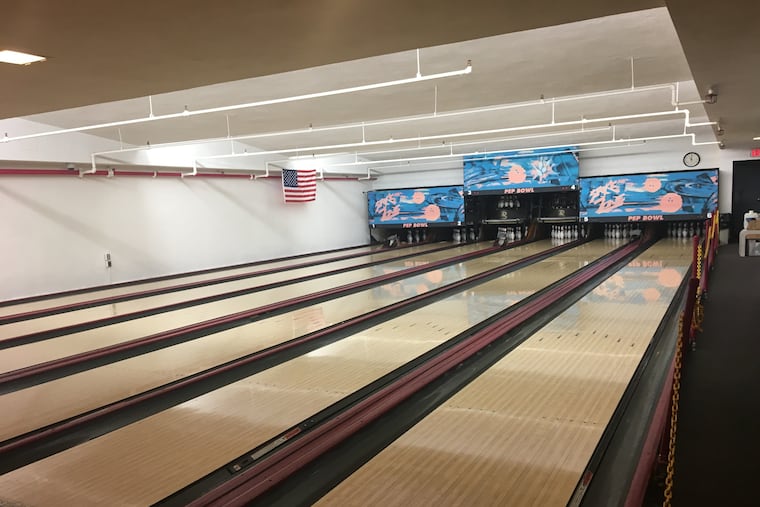PEP Bowl, and its parent organization, will stay in same South Philly spot even as their building sells
The popular bowling alley, and its parent organization, struggled during the pandemic. PEP's building is being sold and part of it converted into apartments.

Reports of the death of PEP Bowl have been greatly exaggerated.
The basement bowling alley and its parent organization, Programs Employing People (PEP), will likely remain in place at 1200 S. Broad St., according to a letter sent by the organization to its clientele.
PEP is selling the building to Spring Hill Services, a Philadelphia-based development and property management company.
Apartments are planned for the rear and some upper levels of the building. PEP will lease the basement bowling alley and three levels of the Broad Street side of the structure for its programs, which provide services to people with developmental disabilities.
“PEP Bowl will be part of the area we are leasing back from the new owner,” the letter reads, “and after a brief closure for remodeling and construction of a new entrance, we will operate it just as we have in the past.”
Spring Hill Services declined an interview because the sale is still in its contingency period. They are waiting on structural and architectural reports to determine the number of apartments that will be built. The sale could still be called off if the results do not fit with their plans.
PEP purchased the 35,000-square-foot building 28 years ago. But the organization has been using less than a third of that space in recent years as it moved more of its programs for the families it serves into spaces where its clients can interact with the public, such as parks.
Shifting best practices in the field and changing guidelines from Pennsylvania’s Office of Developmental Programs — a major PEP funder — encourage more engagement in the community and less in institutional settings.
PEP also suffered a series of financial setbacks during the pandemic, as its ability to provide services and receive related funding was restricted. The almost 70-year-old building, meanwhile, needed repairs that the organization could not afford to make.
In short, PEP’s ability to continue its current operations was dependent on a change in ownership of the building.
“Although the buyer will be redeveloping a portion of the building as apartments, we will be entering a long-term (50-year) lease on enough space to support our programming, as well as retaining all of PEP Bowl,” according to the letter.
PEP plans to use the proceeds of the sale to expand its programming, including adding financial planning services for its families and a Behavior Support Program to help “individuals with more complex needs.”
The letter is signed by Paul Curcio, president of PEP’s board, and the organization’s CEO Michael Tucker.
Tucker wasn’t immediately available for a follow-up interview Monday morning. The sale price of the building was not included in the letter.
The bowling alley is currently closed. In an email to The Inquirer last week, Tucker said that it would reopen and that “the authentic nature of the antique bowling alley will remain the same.”